I’m not sure why I’m so conscious of waste. It might be my (mostly) Scandinavian heritage. I’m part Norwegian – part Danish – and some other stuff. Although my upbringing wasn’t particularly “Scandinavian,” I was raised in Oregon, home of the first container-deposit legislation passed in the U.S. – the Oregon Bottle Bill (1971). I guess it’s no surprise that all these years later, I found myself in the position of Sustainability Coordinator for my daughter’s NYC, Upper Westside public school. As soon as I took over, I shored up the recycling situation, enlisted Terracycle solutions for non-recyclables 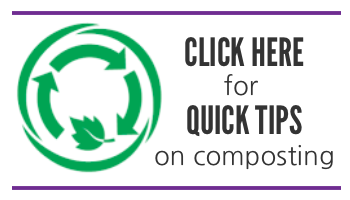 and groomed environmentally friendly student behaviors like packing a waste-free lunch, energy and water conservation, and air quality awareness.
and groomed environmentally friendly student behaviors like packing a waste-free lunch, energy and water conservation, and air quality awareness.
The First Obstacle – Polystyrene Cafeteria Trays Versus Compostable Trays
The cafeteria was a whole other matter however. Our school’s Parent Association paid extra for bagasse (sugar cane) trays for all three schools in our campus building – not an insignificant expense. The driving factor for the pulp trays was health. It is simply not healthy to eat off of polystyrene. Beyond the toxicity factor, it was criminal that all of these non-degradable Styrofoam trays were being carted to a la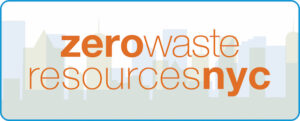 ndfill daily. But more heartbreaking still was the fact that the expensive, compostable trays were NOT being composted.
ndfill daily. But more heartbreaking still was the fact that the expensive, compostable trays were NOT being composted.
As a participant of the NYC District 3 Green Schools group, I found that I was not alone with my concerns. So, a five-member group of us initiated a Cafeteria waste compost pilot program. Students were asked to source separate their waste at established stations in each cafeteria and a private hauler carted all of the collected organic waste (including bagasse trays) to a compost facility. For my building, this was a dramatic shift in behavior and required significant educating and monitoring to encourage participation. (Link here for more information about the D3 Cafeteria Compost Pilot)
The School Compost Pilot Takes Off!
The data that we collected over a five-month period was important and rather astounding. It was important because no data actually existed prior to our pilot. We certainly weren’t the first schools to collect organics for composting; we were just the first to incorporate a unified system of gathering metrics and calculating the data on such an undertaking. The astounding part was that we reduced the landfill/incinerator-bound waste generated in these eight schools by 85%! Another bonus was that source-separation encouraged the recycling of cartons, metals (foil and aluminum trays), glass, bottles and all rigid plastics. Recycling went up nearly 100% – the same result as the Oregon Bottle Bill!
It Turns Out That Composting Saves NYC Money
We were able to present this data to city officials and give them the bottom line on how much money New York City would save by composting NYC school’s organic cafeteria waste, in addition to the environmental benefits. Our Winter/Spring pilot led to the takeover and expansion (by the Departments of Sanitation & Education) to 60+ schools the following Fall. In January 2013, the program expanded further and Mayor Bloomberg announced a rollout of a citywide collection of organics from ALL school cafeterias by 2015! Since that Fall 2012 expansion, participating schools have diverted nearly 500 tons of organic waste. (Link here for a New York Times profile of the NYC school compost program and here for a commentary by Elizabeth Royte about citywide composting efforts)
Green Moms Taking Action Leads to the Ultimate Success Story
I’m the kind of person who has always had a hard time throwing things away. I require a responsible place or use for my trash or I can’t be at peace. The fact that I’ve had a hand in teaching children a better understanding of where our garbage goes, what we generate (needlessly) and each individual’s responsibility to their own waste, is beyond fulfilling. But my ultimate ‘dream come true’ is the fact that our D3 Cafeteria Compost Pilot ended up leading to change on a citywide level, and our journey might even inspire other schools and cities across the nation to follow suit.
What experiences have you had in persuading others to compost or take other steps to reduce waste? Please share.![]() Posting Guidelines
Posting Guidelines
This and other stories published on WeHateToWaste.com are intended to prompt productive conversation about practical solutions for preventing waste. Opinions expressed are solely those of the contributors and WeHateToWaste implies no endorsement of the products or companies mentioned. All comments will be moderated and those that are overly promotional, mean-spirited or off-topic may be deleted. All postings become the property of WeHateToWaste.com.

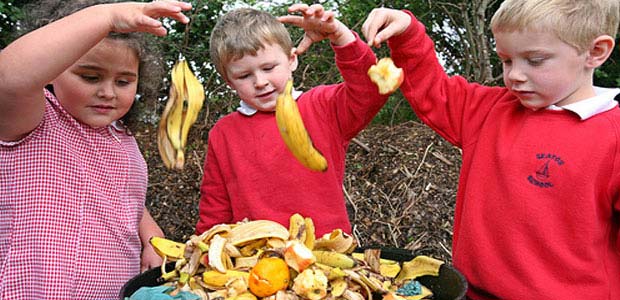
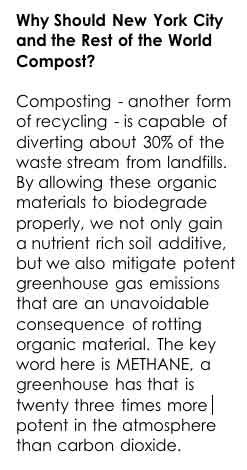
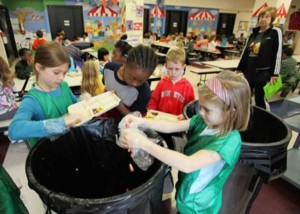
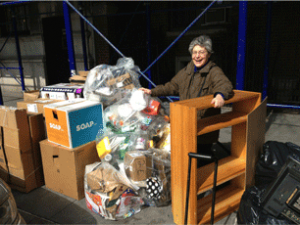
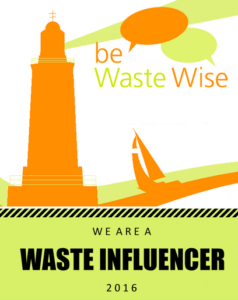
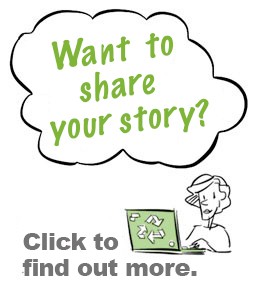
Hi Jennifer, congrats on the success of the cafeteria compost program! I love to see initiatives that are not only educating children about issues such as food waste, but providing ways for them to take action.
And I’m really glad to see that NYC is stepping up its efforts to collect food waste. Recently I came across an alarming statistics: food waste is responsible for 1.5% of greenhouse gas emissions worldwide. So hats off to your program 🙂
Jennifer,
I’d like to second, third and fourth, Drew’s congrats to you, and to Emily Fano and others on your team.
The achievement described in this post is gigantic in my book. First, instilling such a positive new behavior in children, second demonstrating its effectiveness, and translating that story to inspire an organization and a city as large as the DSNY and NYC.
(Fingers crossed that all goes well with city pilot efforts.)
Meanwhile, we’ve been getting requests already for help from folks in establishing composting programs in their own localities. Have you codified your program and learning anywhere? Got any tips to pass along to others?
A truly commendable effort by the green moms! I think that one of the biggest barriers to people acting on environmental and large scale waste issues is the feeling of helplessness- how is anything I do going to make a real difference in the bigger picture? To all you people out there that think this way: THIS is how you can affect the bigger picture. If you notice something wasteful in your school or workplace, change it! Just talk to your boss / the principle and suggest how you could improve the situation. And who knows- other school and companies might catch on too!
Did you know you can take organic waste to any green market in NYC ? Grow NYC have community compost collection at all of their markets. I just learned this tonight, I can’t have my own compost system in my tiny apartment so I’m excited to learn that I can take it to the market on Saturday.
It’s true Beth! Go to their site for locations: http://www.grownyc.org/greenmarket/search
Remember, they take only greens and browns – no proteins (dairy, oils, meat…) Also note that many of the GrowNYC Green markets also accept textiles, so don’t throw out your old t-shirts!
Wow that is amazing that these things can be achieved. Thanks for the inspiration.
I am a hardcore composter. When I moved from Los Angeles (where I had my own bin) to Brooklyn 4 years ago, I was ecstatic to find out that I could drop off my food scraps at the local GreenMarket just 5 short blocks away from our apartment every Saturday AM. BTW, in my opinion, any person with a few cubic yards of outdoor space has the ability to compost. In hot climates, especially, it’s a no-brainer. But indoor city composting with aggregate collection opened my eyes to the enormous potential of a widespread urban movement. Jen, what you and the other moms have done, proves that if kids can do it, so can everyone else. There really is no excuse for NOT composting!
I couldn’t agree more Jenny!
I’m all for compost for sure. But so wish folks would learn how to turn ‘compostables’ into edibles. Awareness raised, I now tend to save all kinds of ‘compostables’ in the freezer and turn them into ‘edible’ stock. The folks behind the ‘waste hierarchy’ would approve!
Jenny, great article! Just wanted to correct one item in the article (one thing that’s been very confusing for lots of people). The plan is to eventually roll-out organics collection to all DOE schools over time, but not by 2015. The local law say we have to have all five boroughs represented in the collection program by 2015 (at the time we only had it in staten island, manhattan and brooklyn). So by next week, we’ll have all five boroughs represented, in a total of 715 schools (40% of the DOE). Let me know if you need more information or would like to talk more offline.
Hi Jennifer,
Great article!This is very inspiring!
Today’s children are tomorrow’s future so it is important that we include them in our efforts to protect and restore the environment. Educating kids about composting is surely a great way to start with!
I hate to waste too so I’m working on a campaign called “Be Grateful, Not Wasteful”, which aims to raise awareness of the food waste issue and inspire people to change their wasteful behavior. Please check out the blog & the Facebook page:
http://gratefulforfood.wordpress.com/
https://www.facebook.com/begratefulnotwasteful
Thanks,
L.C.
Thanks L.C.. We absolutely need to include our youth in efforts to restore THEIR environment. Every single person needs to understand their responsibility to the waste they create. If our students self-audit their waste now, it bodes well for the future. I love your site – Be Grateful, Not Wasteful. So many great tips. Thanks for sharing!
You make a great point, Jennifer. Something I’ve thought alot about, especially being an American. We have a great privilege in this country to ‘consume’ the way we do… such an amazing variety of things to buy that add so much to the comfort we enjoy. We need to teach our children that we have a corresponding responsibility to respect the resources associated with our consumption. Where better to start by teaching children how to respect the food we are so privileged to eat!
A true practice of bottom-up change! By teaching kids at an early age at their local schools, not only are these non-waste ideals imprinted into their mindsets going forth in life, but I see it as the most effective means to bring about a cultural change. Instead of politicians or other authoritative figures demanding new practices in terms of waste control (top-bottom), kids, aka the future, can do so on their own. This makes me optimistic about the future of sustainability.
Hi Jennifer – this is such great work! It’s so impressive that you were able to collect data, and then use your findings to expand the program across the city. I think we definitely need more sustainable initiatives that start like this: concerned parents or other groups who organize a local program and then document it well enough that it can be repeated and expanded. Of course, this program is extra exciting because it also focused on educating children about sustainability. Grassroots organization, data-driven approaches, and education – some of my favorite things!
Thanks Melissa! And you are right – grassroots forces can be super effective. We were amazed at the city council support, ultimately encouraging us to “build it” so that they could get behind it. We as citizens continually underestimate our power. And you’re also right in recognizing that empirical, data driven projects are going to get the most traction. Cheers!
Hi Jennifer – Congrats on such a successful program! Composting and reducing waste should simply be the standard, and it is so important to encourage young people to partake in this practice. For students, learning about and participating in these practices will influence them for life! It is so inspiring that your hard work and effort has created change on such a large scale!
Wow, this is awesome! I’m super inspired by your ability to help change behavior and find ways to encourage participation in the D3 Cafeteria Composting Pilot. I know being a proponent of composting can be very difficult. I have encountered many people who are both hesitant and ‘grossed out’ by the idea of composting, because they fear composting may smell or attract vermin. I would love to know, if you encountered any people who were reluctant to start the composting program, and if so, what strategies did you use to help shift their behavior in favor of the composting program?
Educating kids about waste issues is so powerful. The physical act of source separating a lunch tray ingrains such important values into the minds of these kids. And speaking up is so important! When I was a live-in nanny, I spoke up to my employers about some of the holes in their recycling practices. This sparked a conversation with the boys (8 and 5) about plastics, how many resources it takes to make a plastic bottle, and how harmful plastics are when they enter the ocean and the food supply of wildlife.
Fast forward to dinner with the boys at a pizza place. The manager of the restaurant walked over to the trash bins (trash and recycling side by side) and threw an empty soda bottle in the trash instead of the recycling. The five year old put down his pizza, walked right up to the manager, and scolded him for his carelessness. “Hey! You did it wrong! Get that bottle out of the trash! Don’t you know that gets recycled?!”
The manager sheepishly dug the bottle out of the trash and put it in its proper place.
Congratulations Jennifer!
It is so exciting to see projects like these take off, specially since it is hands on. The younger generation should be our target as they are our future! In fact I often find that they are more enthusiastic about things like composting than us! I believe we should start with kids- their brains act like sponges at such a young age, securing the habits they pick up at an early age through out their lifetime!
You got it Alisha! The best part is that once they understand the profound result of taking responsibility for the waste each individual generates, it becomes more than a habit, it becomes a conscious decision as a steward of the environment. Students are the target group for this kind of education because they need to tools and information to turn our environmental situation around.
I’m proud to say that my almost 3-year old son knows what composting is and he reminds ME that any bits of food that fly to the floor during his mealtimes should be “composted.” But counter that with a recent trip to see friends in LA. One couple has three young children, they have a yard, they have a garden, they produce plenty of food scraps, yet they do not compost. I was begging them to try it out more than 6 years ago, but it’s still on their to-do list. I think that garbage and food waste have been so inseparable for so many people for so long, it’s just habit. For me, it’s jarring to look inside the trash can and see edibles.
Jenny, Jacquie here. Thanks for mentioning this. I have to say, doing the ‘Scrap Bucket Challenge’ recently helped me see just how much compostables were in my own kitchen trash. I had no idea — I thought most of it was trash! I’m now in process of getting one of those collection boxes. It’s a process. Little by little, we’ll change culture. Thanks for nudging the friends and teaching our youngest from the get-go!
Another voice on the composting bandwagon – I just wanted to put my two cents in about composting on college campuses in NYC.
I’m a student at Columbia University, and I’ve worked with Columbia’s Office of Environmental Stewardship on waste reduction. I realized that one of the greatest aspects of the NYC Organics Collection is that participating schools don’t accrue any extra cost. At Columbia University, this has been perhaps the best argument for composting. Often, the administration is hesitant to spend money, but working with the DSNY means that Columbia can compost for free! This doesn’t mean the effort has been without challenges. In fact, only one of Columbia’s main dining halls actually composts with the DSNY organics pickup. Others, even though they generate huge quantities of organics, are not able to compost due to the lack of space and education. Even at Columbia in my Sustainable Development class, four of my peers (out of the five of us) didn’t know that organic waste sent to landfills doesn’t just magically compost! Clearly we have a long way to go not only in composting infrastructure, but also in education. It’s inspiring and gives me hope to see children learning to compost at a young age!
Shana,
Delighted to hear that this program is making an impression at Columbia. If more people understood the realities behind waste management (esp it doesn’t ‘go away’), we’d remove significant barriers to creating a zero waste society. Important to start in the schools!
Great work Jennifer! You should look into collaborating with Leave It Better! http://leaveitbetter.org
They do great work creating community gardens in schools, and composting bins in classrooms! I think could be a great collaboration to scale up the efforts 🙂
This is absolutely great! Do you intend on expanding the composting program to other schools? Showing school districts the cost-benefit analysis of composting would help in promoting these programs. Perhaps showing how much waste the city is preventing from going into the landfills would help in convincing these districts. School districts may be more engaged in these programs if the organic compost goes directly to partnered agriculture farms or gardens, who could then work with the schools to provide various opportunities for the students. This could prevent waste from going to landfills and enhance learning opportunities about the environment and trash for students.
You are absolutely right Calvin. Unfortunately, the DOS has rolled out the organics pick-up for schools only in relation to compost sites available at this time. NYC is actively working on finding additional compost facilities. I believe that grassroots efforts can go a long way in regards to organic waste. Community deposits and redistribution of mature compost would benefit any local municipality.
This is great. Where can I compost? I wish there was a map or a link to the different composting programs around the city that would accept my compost. Also, I would love to learn more about how to develop a composting system for myself.
Instilling positive environmental attitudes at a young age is an awesome tactic to promote long lasting environmental health. I think that as environmentalists it’s also important to learn how to communicate certain issues to the public. Children interacting in such an awesome method of recycling food waste is such an awesome way to get the public’s attention. I love this!
Instilling positive environmental action in children is the perfect way to create long lasting environmental stewardship. I think that it’s also really important for environmentalists to understand how to create environmental issues with the public. Having children interact in such a positive environmental action definitely gets the public’s attention and sparks interest. I love this!
I think composting in NYC schools is a great idea for a number of reasons. Kids who are taught about the importance of composing could bring the concept to their families and possibly start compost collection in their buildings. Teaching kids from an early age the importance of reducing waste will only benefit our planet in the future because we will have raised a generation of environmentally conscious adults. Additionally, composting is a great tool for teaching science. This summer I was an intern with the NYC Compost Project at the Queens Botanical Garden and got to see first hand how the process of decomposition and the plant/soil cycle can be taught through the lens of composting and waste reduction.